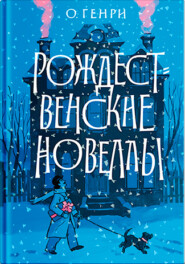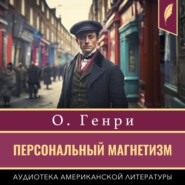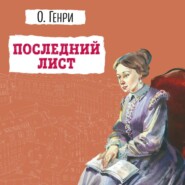По всем вопросам обращайтесь на: info@litportal.ru
(©) 2003-2024.
✖
Roads of Destiny
Настройки чтения
Размер шрифта
Высота строк
Поля
Roads of Destiny
O. Henry
O. Henry
Roads of Destiny
I
ROADS OF DESTINY
I go to seek on many roads
What is to be.
True heart and strong, with love to light —
Will they not bear me in the fight
To order, shun or wield or mould
My Destiny?
Unpublished Poems of David Mignot.
The song was over. The words were David's; the air, one of the countryside. The company about the inn table applauded heartily, for the young poet paid for the wine. Only the notary, M. Papineau, shook his head a little at the lines, for he was a man of books, and he had not drunk with the rest.
David went out into the village street, where the night air drove the wine vapour from his head. And then he remembered that he and Yvonne had quarrelled that day, and that he had resolved to leave his home that night to seek fame and honour in the great world outside.
"When my poems are on every man's tongue," he told himself, in a fine exhilaration, "she will, perhaps, think of the hard words she spoke this day."
Except the roisterers in the tavern, the village folk were abed. David crept softly into his room in the shed of his father's cottage and made a bundle of his small store of clothing. With this upon a staff, he set his face outward upon the road that ran from Vernoy.
He passed his father's herd of sheep, huddled in their nightly pen – the sheep he herded daily, leaving them to scatter while he wrote verses on scraps of paper. He saw a light yet shining in Yvonne's window, and a weakness shook his purpose of a sudden. Perhaps that light meant that she rued, sleepless, her anger, and that morning might – But, no! His decision was made. Vernoy was no place for him. Not one soul there could share his thoughts. Out along that road lay his fate and his future.
Three leagues across the dim, moonlit champaign ran the road, straight as a ploughman's furrow. It was believed in the village that the road ran to Paris, at least; and this name the poet whispered often to himself as he walked. Never so far from Vernoy had David travelled before.
THE LEFT BRANCH
Three leagues, then, the road ran, and turned into a puzzle. It joined with another and a larger road at right angles. David stood, uncertain, for a while, and then took the road to the left.
Upon this more important highway were, imprinted in the dust, wheel tracks left by the recent passage of some vehicle. Some half an hour later these traces were verified by the sight of a ponderous carriage mired in a little brook at the bottom of a steep hill. The driver and postilions were shouting and tugging at the horses' bridles. On the road at one side stood a huge, black-clothed man and a slender lady wrapped in a long, light cloak.
David saw the lack of skill in the efforts of the servants. He quietly assumed control of the work. He directed the outriders to cease their clamour at the horses and to exercise their strength upon the wheels. The driver alone urged the animals with his familiar voice; David himself heaved a powerful shoulder at the rear of the carriage, and with one harmonious tug the great vehicle rolled up on solid ground. The outriders climbed to their places.
David stood for a moment upon one foot. The huge gentleman waved a hand. "You will enter the carriage," he said, in a voice large, like himself, but smoothed by art and habit. Obedience belonged in the path of such a voice. Brief as was the young poet's hesitation, it was cut shorter still by a renewal of the command. David's foot went to the step. In the darkness he perceived dimly the form of the lady upon the rear seat. He was about to seat himself opposite, when the voice again swayed him to its will. "You will sit at the lady's side."
The gentleman swung his great weight to the forward seat. The carriage proceeded up the hill. The lady was shrunk, silent, into her corner. David could not estimate whether she was old or young, but a delicate, mild perfume from her clothes stirred his poet's fancy to the belief that there was loveliness beneath the mystery. Here was an adventure such as he had often imagined. But as yet he held no key to it, for no word was spoken while he sat with his impenetrable companions.
In an hour's time David perceived through the window that the vehicle traversed the street of some town. Then it stopped in front of a closed and darkened house, and a postilion alighted to hammer impatiently upon the door. A latticed window above flew wide and a nightcapped head popped out.
"Who are ye that disturb honest folk at this time of night? My house is closed. 'Tis too late for profitable travellers to be abroad. Cease knocking at my door, and be off."
"Open!" spluttered the postilion, loudly; "open for Monsiegneur the Marquis de Beaupertuys."
"Ah!" cried the voice above. "Ten thousand pardons, my lord. I did not know – the hour is so late – at once shall the door be opened, and the house placed at my lord's disposal."
Inside was heard the clink of chain and bar, and the door was flung open. Shivering with chill and apprehension, the landlord of the Silver Flagon stood, half clad, candle in hand, upon the threshold.
David followed the Marquis out of the carriage. "Assist the lady," he was ordered. The poet obeyed. He felt her small hand tremble as he guided her descent. "Into the house," was the next command.
The room was the long dining-hall of the tavern. A great oak table ran down its length. The huge gentleman seated himself in a chair at the nearer end. The lady sank into another against the wall, with an air of great weariness. David stood, considering how best he might now take his leave and continue upon his way.
"My lord," said the landlord, bowing to the floor, "h-had I ex-expected this honour, entertainment would have been ready. T-t-there is wine and cold fowl and m-m-maybe – "
"Candles," said the marquis, spreading the fingers of one plump white hand in a gesture he had.
"Y-yes, my lord." He fetched half a dozen candles, lighted them, and set them upon the table.
"If monsieur would, perhaps, deign to taste a certain Burgundy – there is a cask – "
"Candles," said monsieur, spreading his fingers.
"Assuredly – quickly – I fly, my lord."
A dozen more lighted candles shone in the hall. The great bulk of the marquis overflowed his chair. He was dressed in fine black from head to foot save for the snowy ruffles at his wrist and throat. Even the hilt and scabbard of his sword were black. His expression was one of sneering pride. The ends of an upturned moustache reached nearly to his mocking eyes.
The lady sat motionless, and now David perceived that she was young, and possessed of pathetic and appealing beauty. He was startled from the contemplation of her forlorn loveliness by the booming voice of the marquis.
"What is your name and pursuit?"
"David Mignot. I am a poet."
The moustache of the marquis curled nearer to his eyes.
"How do you live?"
"I am also a shepherd; I guarded my father's flock," David answered, with his head high, but a flush upon his cheek.
"Then listen, master shepherd and poet, to the fortune you have blundered upon to-night. This lady is my niece, Mademoiselle Lucie de Varennes. She is of noble descent and is possessed of ten thousand francs a year in her own right. As to her charms, you have but to observe for yourself. If the inventory pleases your shepherd's heart, she becomes your wife at a word. Do not interrupt me. To-night I conveyed her to the château of the Comte de Villemaur, to whom her hand had been promised. Guests were present; the priest was waiting; her marriage to one eligible in rank and fortune was ready to be accomplished. At the alter this demoiselle, so meek and dutiful, turned upon me like a leopardess, charged me with cruelty and crimes, and broke, before the gaping priest, the troth I had plighted for her. I swore there and then, by ten thousand devils, that she should marry the first man we met after leaving the château, be he prince, charcoal-burner, or thief. You, shepherd, are the first. Mademoiselle must be wed this night. If not you, then another. You have ten minutes in which to make your decision. Do not vex me with words or questions. Ten minutes, shepherd; and they are speeding."
The marquis drummed loudly with his white fingers upon the table. He sank into a veiled attitude of waiting. It was as if some great house had shut its doors and windows against approach. David would have spoken, but the huge man's bearing stopped his tongue. Instead, he stood by the lady's chair and bowed.
"Mademoiselle," he said, and he marvelled to find his words flowing easily before so much elegance and beauty. "You have heard me say I was a shepherd. I have also had the fancy, at times, that I am a poet. If it be the test of a poet to adore and cherish the beautiful, that fancy is now strengthened. Can I serve you in any way, mademoiselle?"
The young woman looked up at him with eyes dry and mournful. His frank, glowing face, made serious by the gravity of the adventure, his strong, straight figure and the liquid sympathy in his blue eyes, perhaps, also, her imminent need of long-denied help and kindness, thawed her to sudden tears.
"Monsieur," she said, in low tones, "you look to be true and kind. He is my uncle, the brother of my father, and my only relative. He loved my mother, and he hates me because I am like her. He has made my life one long terror. I am afraid of his very looks, and never before dared to disobey him. But to-night he would have married me to a man three times my age. You will forgive me for bringing this vexation upon you, monsieur. You will, of course, decline this mad act he tries to force upon you. But let me thank you for your generous words, at least. I have had none spoken to me in so long."
There was now something more than generosity in the poet's eyes. Poet he must have been, for Yvonne was forgotten; this fine, new loveliness held him with its freshness and grace. The subtle perfume from her filled him with strange emotions. His tender look fell warmly upon her. She leaned to it, thirstily.
"Ten minutes," said David, "is given me in which to do what I would devote years to achieve. I will not say I pity you, mademoiselle; it would not be true – I love you. I cannot ask love from you yet, but let me rescue you from this cruel man, and, in time, love may come. I think I have a future; I will not always be a shepherd. For the present I will cherish you with all my heart and make your life less sad. Will you trust your fate to me, mademoiselle?"
"Ah, you would sacrifice yourself from pity!"
"From love. The time is almost up, mademoiselle."
O. Henry
O. Henry
Roads of Destiny
I
ROADS OF DESTINY
I go to seek on many roads
What is to be.
True heart and strong, with love to light —
Will they not bear me in the fight
To order, shun or wield or mould
My Destiny?
Unpublished Poems of David Mignot.
The song was over. The words were David's; the air, one of the countryside. The company about the inn table applauded heartily, for the young poet paid for the wine. Only the notary, M. Papineau, shook his head a little at the lines, for he was a man of books, and he had not drunk with the rest.
David went out into the village street, where the night air drove the wine vapour from his head. And then he remembered that he and Yvonne had quarrelled that day, and that he had resolved to leave his home that night to seek fame and honour in the great world outside.
"When my poems are on every man's tongue," he told himself, in a fine exhilaration, "she will, perhaps, think of the hard words she spoke this day."
Except the roisterers in the tavern, the village folk were abed. David crept softly into his room in the shed of his father's cottage and made a bundle of his small store of clothing. With this upon a staff, he set his face outward upon the road that ran from Vernoy.
He passed his father's herd of sheep, huddled in their nightly pen – the sheep he herded daily, leaving them to scatter while he wrote verses on scraps of paper. He saw a light yet shining in Yvonne's window, and a weakness shook his purpose of a sudden. Perhaps that light meant that she rued, sleepless, her anger, and that morning might – But, no! His decision was made. Vernoy was no place for him. Not one soul there could share his thoughts. Out along that road lay his fate and his future.
Three leagues across the dim, moonlit champaign ran the road, straight as a ploughman's furrow. It was believed in the village that the road ran to Paris, at least; and this name the poet whispered often to himself as he walked. Never so far from Vernoy had David travelled before.
THE LEFT BRANCH
Three leagues, then, the road ran, and turned into a puzzle. It joined with another and a larger road at right angles. David stood, uncertain, for a while, and then took the road to the left.
Upon this more important highway were, imprinted in the dust, wheel tracks left by the recent passage of some vehicle. Some half an hour later these traces were verified by the sight of a ponderous carriage mired in a little brook at the bottom of a steep hill. The driver and postilions were shouting and tugging at the horses' bridles. On the road at one side stood a huge, black-clothed man and a slender lady wrapped in a long, light cloak.
David saw the lack of skill in the efforts of the servants. He quietly assumed control of the work. He directed the outriders to cease their clamour at the horses and to exercise their strength upon the wheels. The driver alone urged the animals with his familiar voice; David himself heaved a powerful shoulder at the rear of the carriage, and with one harmonious tug the great vehicle rolled up on solid ground. The outriders climbed to their places.
David stood for a moment upon one foot. The huge gentleman waved a hand. "You will enter the carriage," he said, in a voice large, like himself, but smoothed by art and habit. Obedience belonged in the path of such a voice. Brief as was the young poet's hesitation, it was cut shorter still by a renewal of the command. David's foot went to the step. In the darkness he perceived dimly the form of the lady upon the rear seat. He was about to seat himself opposite, when the voice again swayed him to its will. "You will sit at the lady's side."
The gentleman swung his great weight to the forward seat. The carriage proceeded up the hill. The lady was shrunk, silent, into her corner. David could not estimate whether she was old or young, but a delicate, mild perfume from her clothes stirred his poet's fancy to the belief that there was loveliness beneath the mystery. Here was an adventure such as he had often imagined. But as yet he held no key to it, for no word was spoken while he sat with his impenetrable companions.
In an hour's time David perceived through the window that the vehicle traversed the street of some town. Then it stopped in front of a closed and darkened house, and a postilion alighted to hammer impatiently upon the door. A latticed window above flew wide and a nightcapped head popped out.
"Who are ye that disturb honest folk at this time of night? My house is closed. 'Tis too late for profitable travellers to be abroad. Cease knocking at my door, and be off."
"Open!" spluttered the postilion, loudly; "open for Monsiegneur the Marquis de Beaupertuys."
"Ah!" cried the voice above. "Ten thousand pardons, my lord. I did not know – the hour is so late – at once shall the door be opened, and the house placed at my lord's disposal."
Inside was heard the clink of chain and bar, and the door was flung open. Shivering with chill and apprehension, the landlord of the Silver Flagon stood, half clad, candle in hand, upon the threshold.
David followed the Marquis out of the carriage. "Assist the lady," he was ordered. The poet obeyed. He felt her small hand tremble as he guided her descent. "Into the house," was the next command.
The room was the long dining-hall of the tavern. A great oak table ran down its length. The huge gentleman seated himself in a chair at the nearer end. The lady sank into another against the wall, with an air of great weariness. David stood, considering how best he might now take his leave and continue upon his way.
"My lord," said the landlord, bowing to the floor, "h-had I ex-expected this honour, entertainment would have been ready. T-t-there is wine and cold fowl and m-m-maybe – "
"Candles," said the marquis, spreading the fingers of one plump white hand in a gesture he had.
"Y-yes, my lord." He fetched half a dozen candles, lighted them, and set them upon the table.
"If monsieur would, perhaps, deign to taste a certain Burgundy – there is a cask – "
"Candles," said monsieur, spreading his fingers.
"Assuredly – quickly – I fly, my lord."
A dozen more lighted candles shone in the hall. The great bulk of the marquis overflowed his chair. He was dressed in fine black from head to foot save for the snowy ruffles at his wrist and throat. Even the hilt and scabbard of his sword were black. His expression was one of sneering pride. The ends of an upturned moustache reached nearly to his mocking eyes.
The lady sat motionless, and now David perceived that she was young, and possessed of pathetic and appealing beauty. He was startled from the contemplation of her forlorn loveliness by the booming voice of the marquis.
"What is your name and pursuit?"
"David Mignot. I am a poet."
The moustache of the marquis curled nearer to his eyes.
"How do you live?"
"I am also a shepherd; I guarded my father's flock," David answered, with his head high, but a flush upon his cheek.
"Then listen, master shepherd and poet, to the fortune you have blundered upon to-night. This lady is my niece, Mademoiselle Lucie de Varennes. She is of noble descent and is possessed of ten thousand francs a year in her own right. As to her charms, you have but to observe for yourself. If the inventory pleases your shepherd's heart, she becomes your wife at a word. Do not interrupt me. To-night I conveyed her to the château of the Comte de Villemaur, to whom her hand had been promised. Guests were present; the priest was waiting; her marriage to one eligible in rank and fortune was ready to be accomplished. At the alter this demoiselle, so meek and dutiful, turned upon me like a leopardess, charged me with cruelty and crimes, and broke, before the gaping priest, the troth I had plighted for her. I swore there and then, by ten thousand devils, that she should marry the first man we met after leaving the château, be he prince, charcoal-burner, or thief. You, shepherd, are the first. Mademoiselle must be wed this night. If not you, then another. You have ten minutes in which to make your decision. Do not vex me with words or questions. Ten minutes, shepherd; and they are speeding."
The marquis drummed loudly with his white fingers upon the table. He sank into a veiled attitude of waiting. It was as if some great house had shut its doors and windows against approach. David would have spoken, but the huge man's bearing stopped his tongue. Instead, he stood by the lady's chair and bowed.
"Mademoiselle," he said, and he marvelled to find his words flowing easily before so much elegance and beauty. "You have heard me say I was a shepherd. I have also had the fancy, at times, that I am a poet. If it be the test of a poet to adore and cherish the beautiful, that fancy is now strengthened. Can I serve you in any way, mademoiselle?"
The young woman looked up at him with eyes dry and mournful. His frank, glowing face, made serious by the gravity of the adventure, his strong, straight figure and the liquid sympathy in his blue eyes, perhaps, also, her imminent need of long-denied help and kindness, thawed her to sudden tears.
"Monsieur," she said, in low tones, "you look to be true and kind. He is my uncle, the brother of my father, and my only relative. He loved my mother, and he hates me because I am like her. He has made my life one long terror. I am afraid of his very looks, and never before dared to disobey him. But to-night he would have married me to a man three times my age. You will forgive me for bringing this vexation upon you, monsieur. You will, of course, decline this mad act he tries to force upon you. But let me thank you for your generous words, at least. I have had none spoken to me in so long."
There was now something more than generosity in the poet's eyes. Poet he must have been, for Yvonne was forgotten; this fine, new loveliness held him with its freshness and grace. The subtle perfume from her filled him with strange emotions. His tender look fell warmly upon her. She leaned to it, thirstily.
"Ten minutes," said David, "is given me in which to do what I would devote years to achieve. I will not say I pity you, mademoiselle; it would not be true – I love you. I cannot ask love from you yet, but let me rescue you from this cruel man, and, in time, love may come. I think I have a future; I will not always be a shepherd. For the present I will cherish you with all my heart and make your life less sad. Will you trust your fate to me, mademoiselle?"
"Ah, you would sacrifice yourself from pity!"
"From love. The time is almost up, mademoiselle."

















